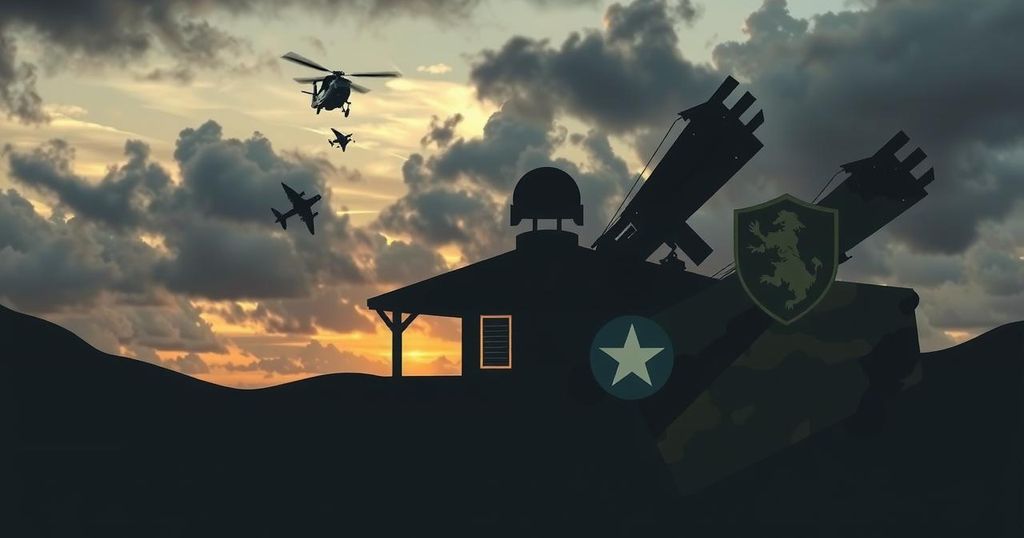Rwandan-backed M23 rebels have advanced into eastern DRC, capturing territory and threatening provincial capitals. President Tshisekedi has urged mass enlistment in the military and criticized international inaction. The conflict escalated significantly following the fall of Goma, with Rwanda’s involvement raising global concerns. Allegations of resource exploitation persist, complicating the already turbulent regional dynamics.
Rwandan-backed rebels have advanced into eastern Democratic Republic of the Congo, consolidating their control as international pleas for restraint seem ineffective. Reports indicate that the M23 group seized two districts in South Kivu province without encounter, targeting the provincial capital of Bukavu. Congolese President Félix Tshisekedi has called for young people to join the military and pledged a robust response to the growing threat from rebel forces.
This conflict has escalated since the rebels and Rwandan soldiers entered Goma, the capital of North Kivu province, marking the most significant uptick in violence since 2012. Congo’s military is primarily positioned in Kavumu, which is crucial for protecting Bukavu. The loss of Goma has led to Congolese troops fleeing towards Bukavu, indicating a potential risk of further territorial loss.
In his address following Goma’s fall, President Tshisekedi denounced international inaction and emphasized a “coordinated response” to counteract what he called terrorist threats and their backers. He urged citizens to enlist in the military, labeling them the forefront of national defense. His criticism extended to the global community’s muted response amid what he termed a deteriorating security landscape.
The ongoing conflict features approximately 4,000 Rwandan troops supporting the M23 rebels, intensifying concerns about Rwanda’s involvement. The United States and Germany have expressed concern over the situation, with Germany canceling negotiations with Rwanda and the UK threatening significant aid reductions. In spite of this, Rwanda’s ambassador stated the advancement of M23 forces continues unabated.
President Tshisekedi’s absence from a recent East African Community summit highlights the rising tensions, despite calls for ceasefire and dialogue. Allegations persist that Rwanda’s military actions are financially motivated, seeking to exploit DRC’s abundant mineral resources, a claim supported by UN experts. However, Rwanda denies these allegations, asserting that its operations target the FDLR, an armed group tied to historic atrocities.
The context of the ongoing conflict in the Democratic Republic of the Congo (DRC) is rooted in complex historical tensions involving ethnic rivalries, political instability, and external influences, particularly from Rwanda. The resurgence of the M23 rebels, linked to Kigali, has heightened tensions in a region rich in coveted minerals like gold and cobalt. Past conflicts have shown that these resources are both an economic boon and a source of contention, often exploited by various armed groups. Rwanda’s involvement, characterized by the deployment of troops in support of the M23, has attracted international scrutiny. The DRC government accuses Rwanda of not only invading but also seeking to gain control over the region’s lucrative resource wealth, which has been a common narrative in conflicts within the Great Lakes region.
In summary, the current military escalation in eastern DRC marks a critical phase in a prolonged conflict, fueled by the resurgence of the M23 rebels with Rwandan support. President Félix Tshisekedi has called for nationwide military enlistment to counteract the insurgency. As international responses to the crisis evolve, the dynamics of regional security and territorial integrity remain precarious amid accusations of resource exploitation. The humanitarian implications continue to be profound, necessitating urgent global attention and intervention.
Original Source: www.theguardian.com






